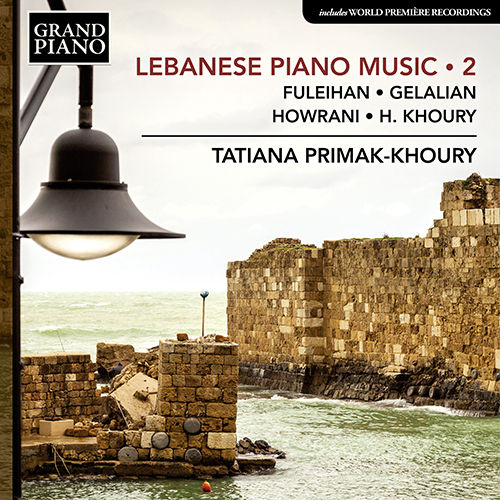
About this Release
“My 20-year stay in Lebanon resulted in series of concert programmes dedicated entirely to piano works by Lebanese composers. This is my second album in exploring this wonderful music, which seems to me even more profound and interesting. Challenging in performance, these pieces reflect the complexity, vibrancy and diversity of Lebanese life, culture and history. A monumental sonata by Anis Fuleihan is a powerful and challenging example of a large 20th century sonata. Fuleihan’s way of combining diatonic and chromatic elements in his musical textures corresponds to contrasting archaic and modern, simple and complicated ideas through the whole Sonate with amazing power, lyricism and structure. Another example of an entirely diatonic approach is “Aria and fugue on white keys”(which plays an “encore” role in this CD) which I find strikingly beautiful, pure and inventive. Houtaf Khoury’s extraordinary gift to deploy an impressive large-scale structure out of minimal but strong and effective ideas is absolutely fascinating in his Sonate No. 4. He finds incredible sonorous ideas which, within unusual combination of textures and rhythms (sometimes very complicated), create an absolutely new perception of musical space and time. The power, expression, originality, emotional intensity and orientalisme are main qualities of this wonderful Sonate. Boghos Gelalian’s sonate represents the romantic side of the composer, giving his native Armenian melodies and rhythms romantic urban atmosphere, very picturesque and expressive. The Oriental Rhapsody by Walid Howrani is a generous selection of popular Lebanese folk tunes combined in an inventive and humorous way. Each time I played it in concerts in Lebanon, people would get so excited and cheered recognising favourite melodies.” — Tatiana Primak-Khoury
LEBANESE PIANO MUSIC • 2
Fuleihan • Gelalian • Howrani • Khoury
- Tatiana Primak-Khoury, piano
Three substantial piano sonatas stand at the heart of a recording that reflects personal and musical independence. For Anis Fuleihan, the juxtaposition of archaic and modern is both kaleidoscopic and playful, while Boghos Gelalian draws on folkloric and late-Romantic influences in his brand of ‘Orientalism’. Houtaf Khoury’s Sonata No. 4 both questions and reflects unsettling contemporary experience in a work of audacious, pulsing intensity.
Tracklist
|
Fuleihan, Anis
|
|
Piano Sonata No. 4 (1963) (00:25:00 )
|
|
1
I. Allegro moderato (00:09:22)
|
|
2
II. Andantino, mesto (00:08:18)
|
|
3
Intermezzo: Allegro molto moderato (00:01:35)
|
|
4
III. Allegro molto, ritmico (a la grèque) (00:05:28)
|
|
Khoury, Houtaf
|
|
Piano Sonata No. 4, "Sham" (2016) (00:19:00 )
|
|
5
I. Morass (00:05:17)
|
|
6
II. Désolation (00:11:44)
|
|
7
III. Sham (00:03:44)
|
|
Gelalian, Boghos
|
|
Piano Sonata (1964) (00:13:00 )
|
|
8
I. Allegro vivo (00:03:44)
|
|
9
II. Andantino (00:05:06)
|
|
10
III. Molto vivace e brioso (00:03:22)
|
|
Howrani, Waleed
|
|
11
Lebanese Rhapsody (1996) (00:13:41)
|
|
Fuleihan, Anis
|
|
Air and Fugue on White Keys (1943) (00:07:00 )
|
|
12
Air: Largo (00:04:31)
|
|
13
Fugue: Vivace (00:02:12)
|
The Artist(s)
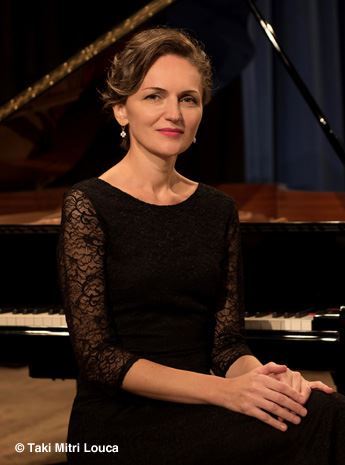 Married to Lebanese composer Houtaf Khoury, Tatiana Primak-Khoury has given several premieres of his piano works including Piano Concerto No. 1 with the National Symphony Orchestra of Ukraine in 1996, Piano Concerto No. 2 ‘Angel of Light’ with the Qatar Philharmonic Orchestra in 2012, four piano sonatas and other works. In addition to her performing career, Primak-Khoury serves as artist-in-residence at the University of Balamand in Lebanon, and teaches at the Lebanese National Higher Conservatory of Music.
Married to Lebanese composer Houtaf Khoury, Tatiana Primak-Khoury has given several premieres of his piano works including Piano Concerto No. 1 with the National Symphony Orchestra of Ukraine in 1996, Piano Concerto No. 2 ‘Angel of Light’ with the Qatar Philharmonic Orchestra in 2012, four piano sonatas and other works. In addition to her performing career, Primak-Khoury serves as artist-in-residence at the University of Balamand in Lebanon, and teaches at the Lebanese National Higher Conservatory of Music. The Composer(s)
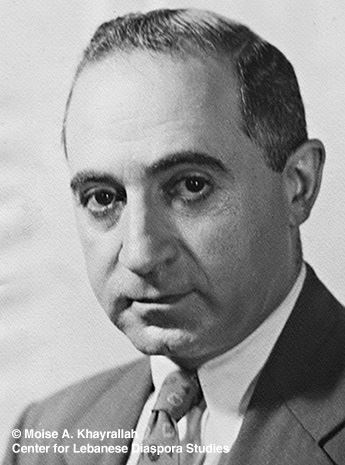 Anis Fuleihan made an intensive study of Middle Eastern traditional music as early as the 1920s. Inasmuch as he was director of the Beirut Conservatory from 1953 to 1960, and conductor of Beirut’s orchestra during the same period, Fuleihan is one of the founding fathers of Lebanese symphonic music. His orchestral works were premièred by the likes of John Barbirolli and Leopold Stokowski, and he himself frequently conducted the New York Philharmonic. After teaching at Indiana University for many years, Fuleihan held appointments first in Beirut and later in Tunisia, where he founded the Orchestre Classique de Tunis in 1962. Not only his biography, but also his music gives the impression that he was a focussed and vigorous cosmopolitan.
Anis Fuleihan made an intensive study of Middle Eastern traditional music as early as the 1920s. Inasmuch as he was director of the Beirut Conservatory from 1953 to 1960, and conductor of Beirut’s orchestra during the same period, Fuleihan is one of the founding fathers of Lebanese symphonic music. His orchestral works were premièred by the likes of John Barbirolli and Leopold Stokowski, and he himself frequently conducted the New York Philharmonic. After teaching at Indiana University for many years, Fuleihan held appointments first in Beirut and later in Tunisia, where he founded the Orchestre Classique de Tunis in 1962. Not only his biography, but also his music gives the impression that he was a focussed and vigorous cosmopolitan.  Boghos Gelalian earned his living as a pianist in nightclubs, then working as a music arranger for radio. As musical advisor to the Rahbani brothers, he went on to play a significant role in the singer Fairuz’s rise to become a legendary icon of Arabic music. Fairuz’s son Ziad Rahbani, who later became the Lebanese left wing’s figurehead, was also one of his pupils. Despite his familiarity with jazz and light music and the Turkish and Arabic traditions, Gelalian’s own compositions are uncompromisingly modern. Their intense chromaticism occasionally verges on atonality, whilst also—astonishingly—being derived from Armenian and oriental modes.
Boghos Gelalian earned his living as a pianist in nightclubs, then working as a music arranger for radio. As musical advisor to the Rahbani brothers, he went on to play a significant role in the singer Fairuz’s rise to become a legendary icon of Arabic music. Fairuz’s son Ziad Rahbani, who later became the Lebanese left wing’s figurehead, was also one of his pupils. Despite his familiarity with jazz and light music and the Turkish and Arabic traditions, Gelalian’s own compositions are uncompromisingly modern. Their intense chromaticism occasionally verges on atonality, whilst also—astonishingly—being derived from Armenian and oriental modes. 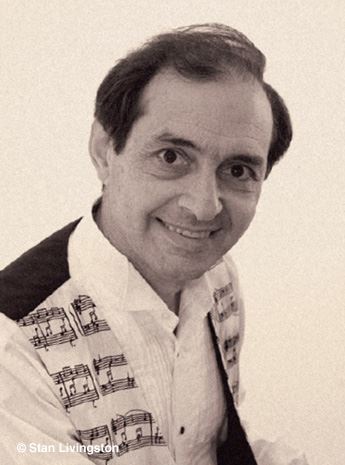 Born in 1948 in New York, but raised in Lebanon, Waleed Howrani is to this day one of the most internationally successful piano virtuosos from the Middle East. After beginning his studies at the Beirut Conservatory he continued studying in Moscow—an arrangement enabled by Aram Khachaturian—where he was a pupil of Emil Gilels, among others. Successes in competitions such as the International Tchaikovsky Competition of 1966 and the Queen Elisabeth Competition in Brussels in 1968 paved the way for an international career. But when Howrani, in his mid-thirties and now back in the US, fell seriously ill, he decided to make an old childhood dream reality and—under the guidance of William Albright—‘to take lessons in composition before it was too late’.
Born in 1948 in New York, but raised in Lebanon, Waleed Howrani is to this day one of the most internationally successful piano virtuosos from the Middle East. After beginning his studies at the Beirut Conservatory he continued studying in Moscow—an arrangement enabled by Aram Khachaturian—where he was a pupil of Emil Gilels, among others. Successes in competitions such as the International Tchaikovsky Competition of 1966 and the Queen Elisabeth Competition in Brussels in 1968 paved the way for an international career. But when Howrani, in his mid-thirties and now back in the US, fell seriously ill, he decided to make an old childhood dream reality and—under the guidance of William Albright—‘to take lessons in composition before it was too late’.  Born in Tripoli in 1967 and with a doctorate in musicology, Houtaf Khoury represents the younger generation of Lebanese composers. The formative influences on his work came from the Ukraine, from Kiev, where a grant enabled him to pursue his studies from 1988 to 1997. Khoury shares the scepticism of composers such as Shostakovich, Schnittke and Kancheli vis-à-vis the avant-garde’s obsession with material and the belief that music always conveys a message. His orchestral works, chamber music and compositions for piano are pleas for a more humane world.
Born in Tripoli in 1967 and with a doctorate in musicology, Houtaf Khoury represents the younger generation of Lebanese composers. The formative influences on his work came from the Ukraine, from Kiev, where a grant enabled him to pursue his studies from 1988 to 1997. Khoury shares the scepticism of composers such as Shostakovich, Schnittke and Kancheli vis-à-vis the avant-garde’s obsession with material and the belief that music always conveys a message. His orchestral works, chamber music and compositions for piano are pleas for a more humane world. Reviews
“ Primak-Khoury is positively sparking in her delivery. The entire disc is a joy to experience, and once more offers an eye-opening voyage into uncharted waters.” – Fanfare

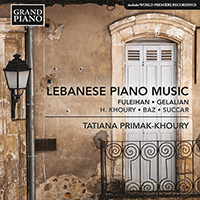
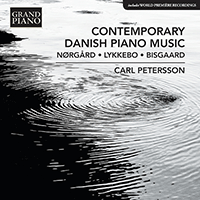

 Grand Piano has gained a reputation for producing high quality recordings of rare keyboard gems. Dedicated to the exploration of undiscovered piano repertoire, the label specialises in complete cycles of piano works by many lesser-known composers, whose output might otherwise have remained unknown and unrecorded.
Grand Piano has gained a reputation for producing high quality recordings of rare keyboard gems. Dedicated to the exploration of undiscovered piano repertoire, the label specialises in complete cycles of piano works by many lesser-known composers, whose output might otherwise have remained unknown and unrecorded.






